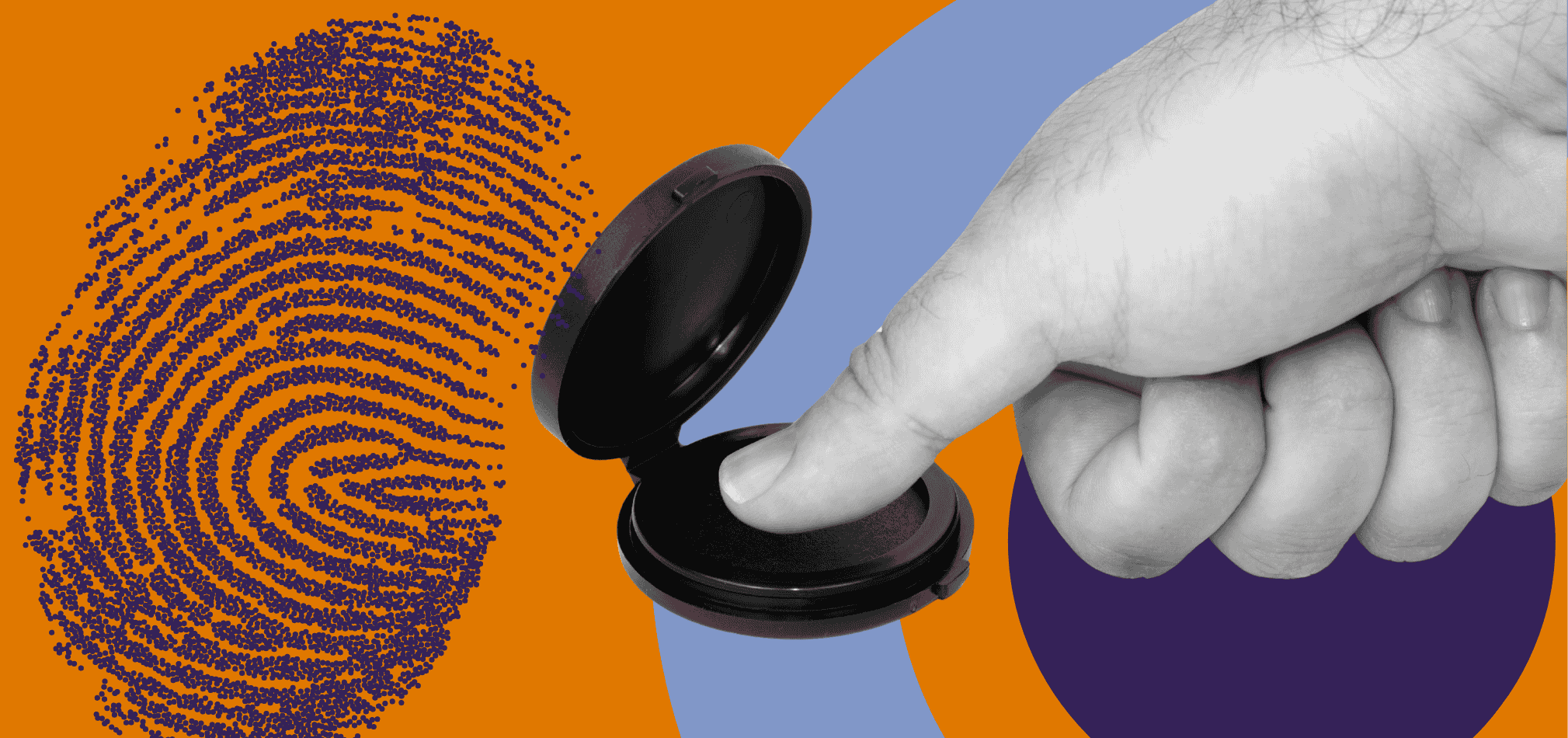Fingerprinting Requirements for California Home Health & Hospice Agencies
July 16th, 2025
3 min read
By Abigail Karl

You’ve spent months gathering documents, finalizing paperwork, and completing your application to open a home health or hospice agency. But just when you think you’re ready to submit, you find out your fingerprints are missing—or worse, expired. Now your launch is delayed by weeks or even months.
*This article was written in consultation with Kelly McCarthy.
At The Home Health Consultant, we've successfully processed hundreds of agency applications, which includes working with agencies to get their fingerprints (we even take your ink fingerprinting at our office if you're local). After years processing applications, we know the Medicare and California-specific fingerprinting process inside and out.
In this article, we’ll walk you through:
- The difference between federal and California fingerprinting requirements
- Who needs fingerprinting
- Which type of fingerprinting is required for who
- How long each type of fingerprinting is valid
- How to avoid the mistakes that cost new agencies precious time and money
By the end of this article, you’ll know exactly what to expect from your fingerprinting process and how to keep your application process on schedule.
What Is Federal Ink Fingerprinting for Medicare Certification?
If you’re applying for Medicare certification, federal regulations require owners with 5% or greater ownership to undergo ink fingerprinting. This is part of the Affordable Care Act’s high-level screening for high-risk providers like home health and hospice.
These ink fingerprints are typically completed through Accurate Biometrics or similar providers. While electronic fingerprinting is an option, there is currently only one location in the Los Angeles area that offers this, so most owners opt for traditional ink prints.
Here’s what often surprises agency owners: ink fingerprints expire after six months. If your application process takes longer than that, you may need to submit a new set to ensure they’ll be accepted.
If your first fingerprint set is unclear, Medicare will request a second submission. If the second set is still unreadable, they will complete a name-based background check, which extends processing time.
Federal ink fingerprinting costs are relatively low, averaging under $40 in California. However, delays caused by expired or unreadable prints can cost far more in lost operational time.
To recap:
- When Do You Need Federal Fingerprinting: During application for Medicare certification/accreditation
- Who Needs Federal Fingerprinting: Home Health or Hospice agency owners
- How Much Does Federal Fingerprinting Cost: about $40
- After How Long Do Federal Fingerprints Expire: 6 months
Who Needs State Live Scan Fingerprinting for Home Health or Hospice in California?

In addition to federal fingerprints, California’s Department of Public Health requires state-level Live Scan fingerprints for home health agencies. Live scan is an electronic fingerprinting system performed at approved facilities.
Live scan fingerprints are required for:
- Owners
- Administrators
- Directors of patient care services (DPCS)
These fingerprints are required to ensure agency owners and those with key clinical roles are of good moral character, and can handle sensitive patient information and interactions.
Although hospice agencies aren’t currently required to complete live scans, this could change once the hospice moratorium ends.
After your fingerprints are taken, the data is sent directly to the Department of Justice for processing. You’ll receive a form verifying completion, which you must submit with your licensure or change application. Unlike ink fingerprints, live scan results remain valid for three years.
Live scan fingerprints are required for:
- Initial agency applications
- Change applications affecting ownership or key staff roles
Mistakes or unreadable prints with live scan are rare. However, if there is an issue, the state will issue a specific code requesting a redo. These cannot be redone voluntarily without an official request. Costs generally fall under $100, depending on the location.
To recap:
- When Do You Need California Live-Scan Fingerprinting: Initial licensure applications OR change of staff or ownership applications
- Who Needs California Live-Scan Fingering: Home Health or Hospice agency owners, administrators, & DPCS
- How Much Do California Live-Scan Fingerprints Cost: typically under $100
- After How Long Do California Live-Scan Fingerprints Expire: 3 years
The Differences Between California State and Federal Fingerprint Requirements in Home Health & Hospice
The chart below breaks down the main differences between the fingerprints required by Medicare and the fingerprints required by the state of California. 
How Can Agency Owners Avoid Common Fingerprinting Mistakes?
Over the years, we’ve seen new agency owners make the same preventable mistakes with fingerprinting.
Many assume that getting Live Scan fingerprints alone is enough, forgetting that California requires separate live scans for licensure. Others don’t realize how quickly ink fingerprints expire, leading to last-minute re-dos that delay their application’s approval. Some misplace their live scan proof forms, resulting in incomplete submissions that stall processing.
Avoiding these pitfalls is simple once you know what to expect. Keep organized records, track fingerprint expiration dates, and ensure you budget time for reprints if needed.
How Can You Prevent Fingerprinting Delays in Your Application?

Opening a home health or hospice agency in California requires two separate fingerprinting processes:
- Federal ink fingerprints for Medicare (owners only)
- State live scan fingerprints for CDPH (owners, administrators, and DPCS for home health)
While it may feel like just another regulatory hurdle, fingerprinting is essential for maintaining the security standards that protect your agency, your staff, and your patients.
Review your current applications today to confirm all fingerprints are completed, valid, and properly documented.
If you’re feeling overwhelmed by licensure and accreditation requirements, we can help. Schedule a call with The Home Health Consultant to ensure your fingerprinting (and your entire application) is submitted accurately, so you can focus on launching your agency without unnecessary delays.
*Disclaimer: The content provided in this article is not intended to be, nor should it be construed as, legal, financial, or professional advice. No consultant-client relationship is established by engaging with this content. You should seek the advice of a qualified attorney, financial advisor, or other professional regarding any legal or business matters. The consultant assumes no liability for any actions taken based on the information provided.




